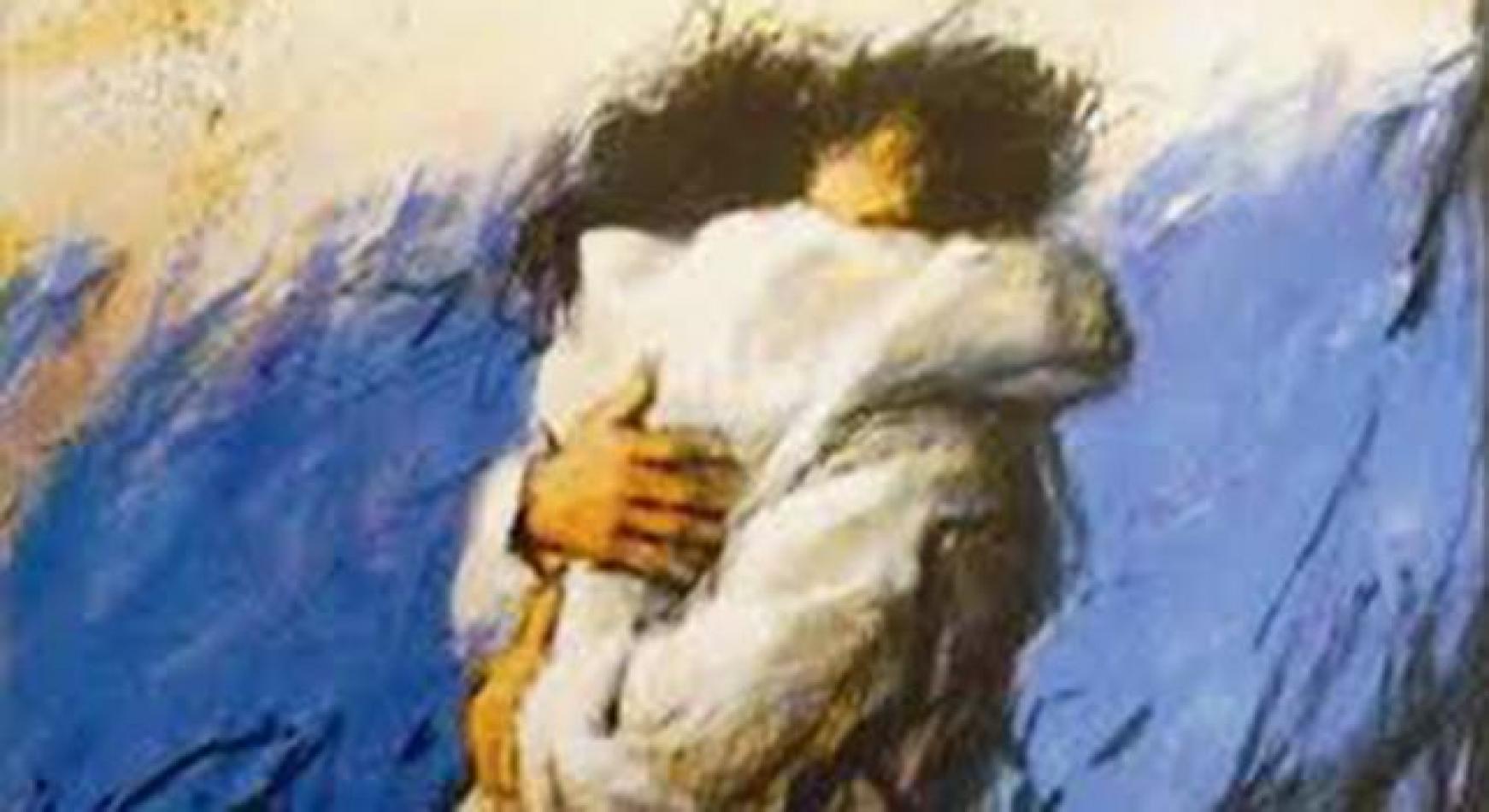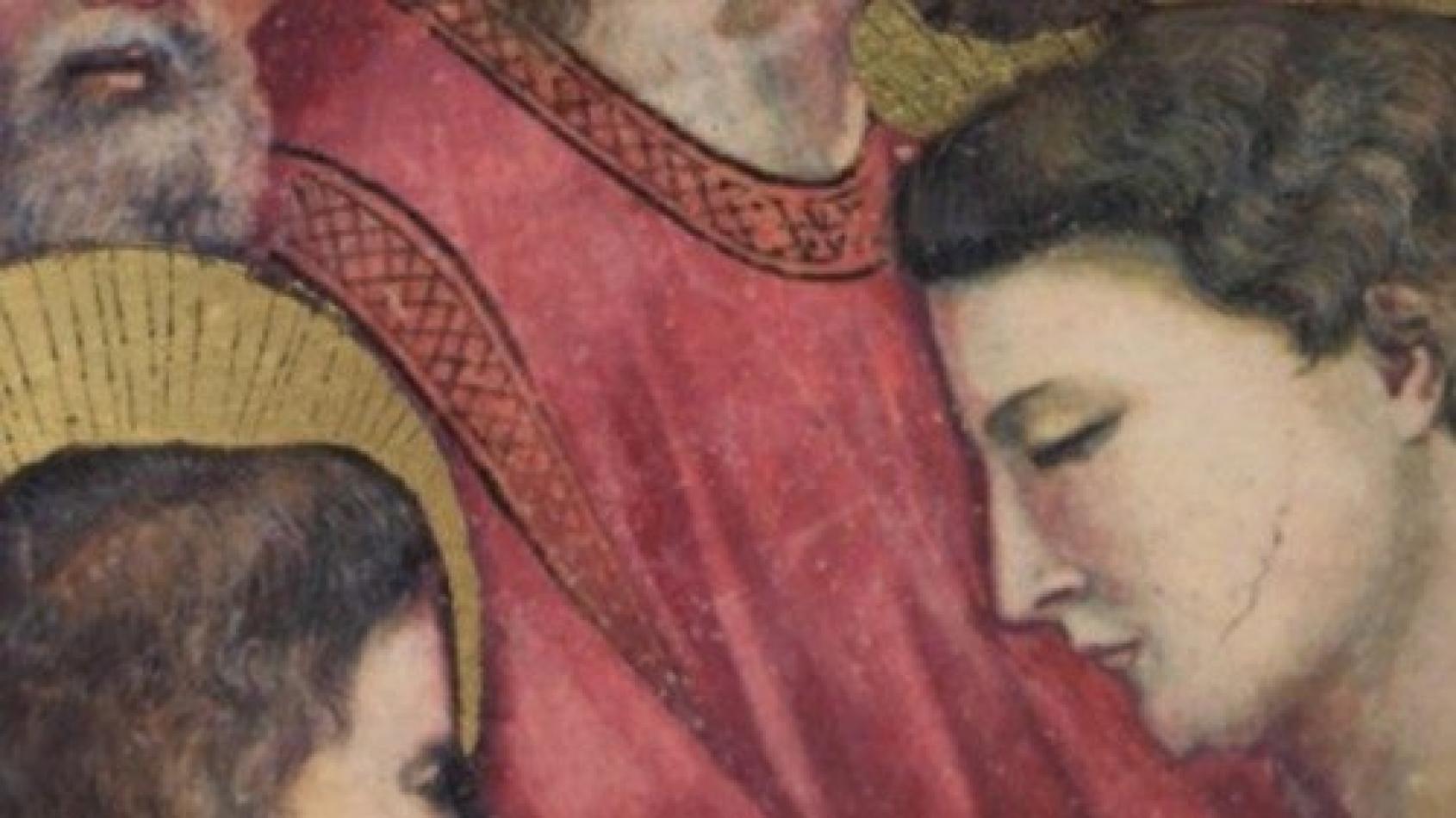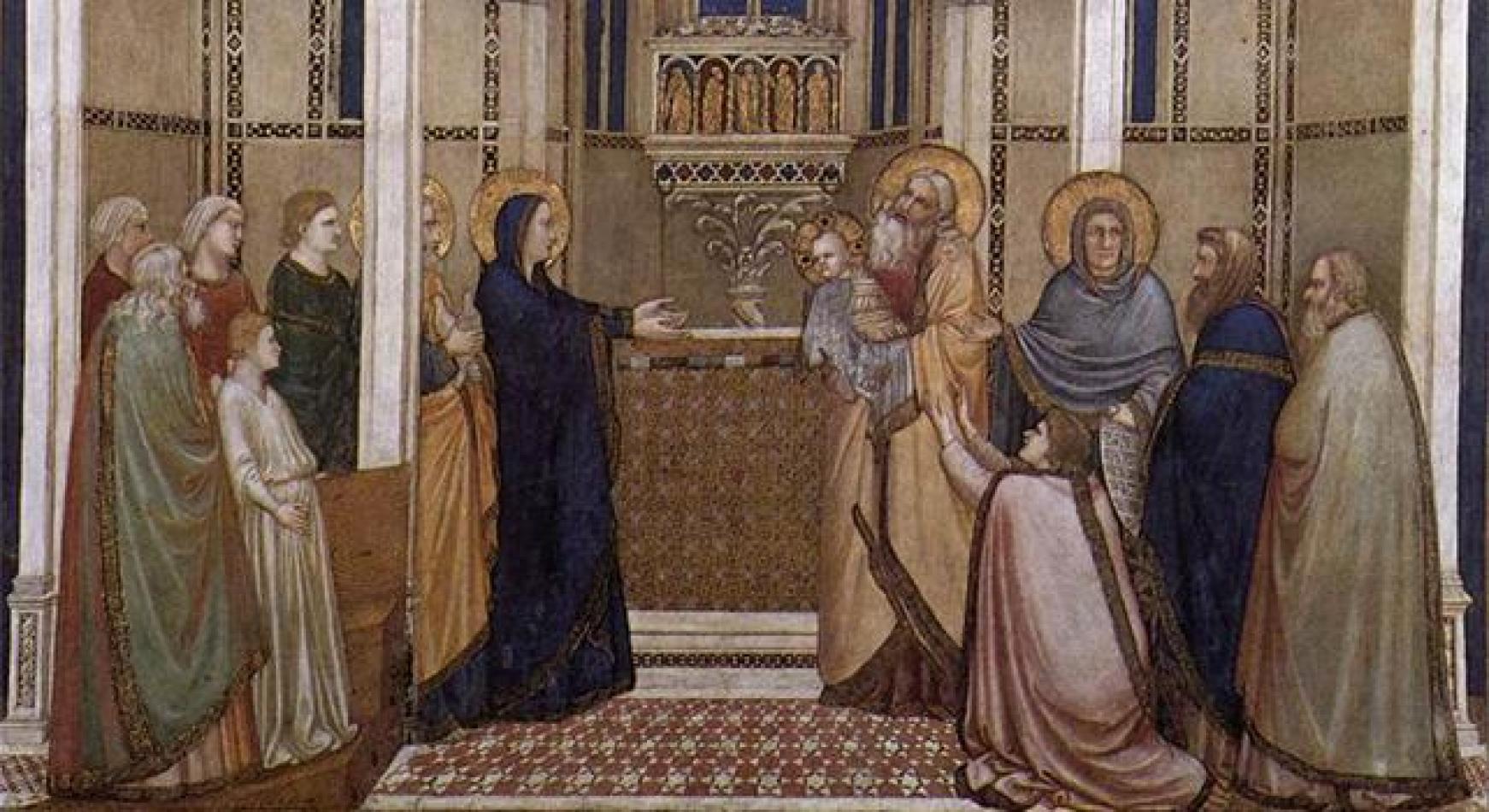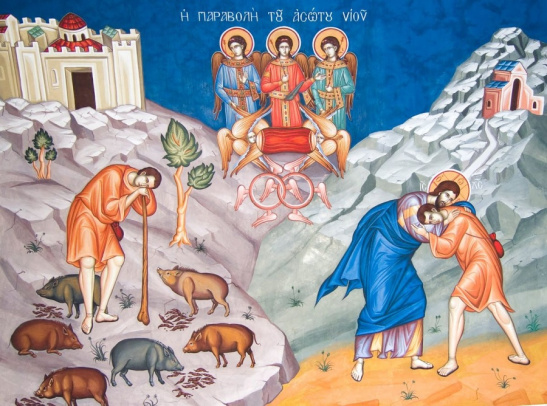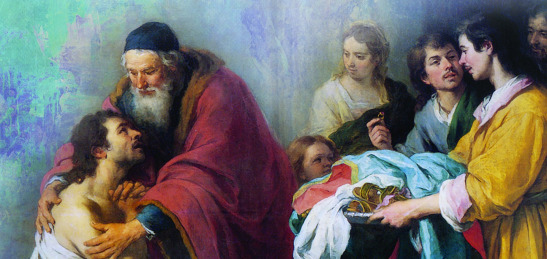Daniel Comboni
Comboni Missionaries
Institutional area
Other links
Newsletter
And here is the most beautiful of all the parables of the Gospels. From the early days of the church it has been studied, commented and suggested ideas to great writers, painters, musicians, philosophers, psychologists. It is known as the “Parable of the prodigal son,” but this title is not apt because it takes into account only one of the three characters. It neglects his older brother to whom is dedicated the entire second part of the story and, above all, it ignores the real protagonist, the father. It is more correct then to speak of the “Parable of the love of the Father” or the “Parable of the merciful father.”
Sin? A hell from which the Father’s love frees us
Gospel reflection – Luke 15:11-32
And here is the most beautiful of all the parables of the Gospels. From the early days of the church it has been studied, commented and suggested ideas to great writers, painters, musicians, philosophers, psychologists. It is known as the “Parable of the prodigal son,” but this title is not apt because it takes into account only one of the three characters. It neglects his older brother to whom is dedicated the entire second part of the story and, above all, it ignores the real protagonist, the father. It is more correct then to speak of the “Parable of the love of the Father” or the “Parable of the merciful father.”
It is often used during penitential services with the aim of touching the heart of the most obstinate sinners. Used in this context, however, the second part of the story creates some embarrassment, bothers a bit the emotion and recollection that are created. More than once we wondered why Jesus did not stop after the embrace of the father of the prodigal son and the beginning of the festival.
Who asks this question has not been paying attention to the verses that introduce the parable. He has not checked to whom and for what reason Jesus tells it. He is not appealing to sinners but to the righteous: “Tax collectors and sinners were seeking the company of Jesus. But the Pharisees and scribes frowned at this, muttering, ‘This man welcomes sinners and eats with them.’ So Jesus told them this parable” (vv. 1-3).
They are the Pharisees and the scribes, the faultless that are running a big spiritual risk. They are those in danger because they have completely distorted the relationship with God; they did not understand that he loves all freely and before him they cannot claim merits.
In the previous chapter Jesus is presented at the table of one of the leading Pharisees (Lk 14:1). Now he has considerably changed company: he is with all the publicans and sinners, indeed, he seems to have invited them to his house. A scandalous choice that causes the indignation of the righteous who cannot but conclude that this man who frequents the company of the impure cannot come from God. To justify his behavior Jesus tells the parable. It is therefore in the second part of the story that the main lesson is found. It is there that the older brother who clearly represents the Pharisees enters the scene. They are the blameless observants of the commandments and of the precepts of the law. They are the ones who need to change their way of thinking if they don’t want to remain excluded in the banquet of the kingdom announced by the prophets (Is 25:6-8).
After this introduction, we come to the parable.
One day the younger son of a wealthy landowner comes to his father and asks for his inheritance. The wise Sirach does not recommend to adhere to such a request. He would say to the father: “It is preferable for your children to be dependent on you. Wait until the end of your days, until death is near, to distribute your inheritance” (Sir 33:22-24). But the father in the parable does not put up any resistance. He silently divides his wealth between his two sons, in accordance with what the law establishes.
This father’s behavior indicates the respect of God for the choices of man. He exhorts, educates, advises, accompanies, but always leaves freedom also to make mistakes.
Why does the younger son hurriedly decide to leave the family? The first reason is that he sees in his father a kind of tyrant who imposes his will and does not allow him to do what he wants. The years of youth are few, pass like a breath and one runs the danger of losing the best opportunities and the most precious time to enjoy life. It draws on the reasoning of the insane: “Our days are like the passing of a shadow. Come then, and enjoy all the good things; let us use creation with the zest of youth and not passing any flower of spring. Let us crown ourselves with rosebuds before they fade; let everyone take part in our orgy” (Wis 2:5-9).
However, it is perhaps unfair to think that the faults are only his. Soon we will know his brother and we will immediately sense what kind of guy he is, how he thinks, reasons, how proud he is of his perfection, moral integrity and intolerant with whoever does not share his convictions, duties, frenetic rhythm of his work. We will realize that living beside such a type is not easy or rewarding.
The goal of the young is “a far country.” He breaks with his family, his people, the religious traditions of his homeland and goes to settle among the heathens, breeders of pigs, unclean animals par excellence (Lev 11:7). It is the image of alienation from God, rejection of all moral principles, the choice of a dissolute and uninhibited life.
Far from the house of the Father, however, joy and peace are wanting. The pursuit of pleasure, drugs, false friends, the sexual aberrations end up to nauseate. The adventures do not fill; man needs an inner balance, otherwise, he feels “starved”. The scene of the young man forced to put himself at the service of a pagan and to keep his pigs very effectively represents the desperate condition and degradation of one who turns away from God. The rabbis said: “Cursed be the man who rears pigs.”
The experience of disappointment is providential, it drops in themselves. The rabbis still said: “When the Israelites were forced to eat carob, they convert.” But this guy was he sorry or not?
The answer to this question is of paramount importance for understanding the parable. If we read carefully verses 17-19, we note that the concern of the younger son is not the pain caused to the father, but hunger. The case would be different if he “fell in himself” and say: “Look where I am! I was a degenerate son. I ruined my life, but before I die I want to apologize to my father, I want to embrace him. Then I will leave again, without accepting even a cup of coffee, because I do not deserve it.” If he speaks in this way, then yes it would give signs of repentance. Instead, he makes no mention of the pain caused to his father. His only concern is to find a piece of bread. The nice little speech he prepares and intends to recite upon arrival at home has one purpose: to move the father and convince him to feed him.
The conclusion that imposes itself then cannot be but this: there is no evidence that militates in favor of his repentance.
He leaves anyway and implements, in every detail, the project outlined in his soliloquy (v. 20). Now the father returns to the scene. He does not say a word. His reaction to the returning son is described with five verbs which alone are sufficient to consider this verse as one of the most beautiful of the whole Bible.
– He saw him a long way off. He sees him first because he has always been waiting for him.
– He was deeply moved with compassion. The Greek verb splagknizomai indicates a very intense and so profound emotion as to be perceived physically in the “bowels.” It is the feeling that a mother experiences towards the child she is carrying. One cannot imagine a more intimate and stronger emotion. In the New Testament this verb appears only in the Gospels (twelve times) and is always referred to God or Jesus, as if to say that only God is able to feel this form of love.
– He ran out. An instinctive but careless gesture for an old man. It is also undignified for a person of his rank. The emotion has clearly caused the father to lose control of his reactions. He acts just by listening to the heart.
– He threw his arms around his neck. Literally, he fell on the neck, which is much more than to embrace. We find this expression only one more time in the New Testament. It is used to express the feelings of the Ephesian elders when they greet Paul, knowing that they would no longer see his face: “They all began to weep and threw their arms around him and kissed him” (Acts 20:37).
– He did not stop to kiss him. It is not the traditional kiss of greeting given to the host, but is a sign of welcome; it is the expression of joy and forgiveness. The father does not allow his son to kneel.
Faced with the reaction of the father, the prodigal son—whose repentance we have already expressed reservations—takes the floor and “recites” his confession. He cannot finish it. When he is about to add: “treat me then as one of your hired servants,” the father cuts him off and starts to give orders (vv. 21-22). His dispositions have a meaning and a symbolic reference.
– The son must be given the best long robe—the one used for feasts, for respected guests, the same one that, according to the seer of the Apocalypse, is worn by the elect in heaven “who stand before the throne and the Lamb” (Rev 7:9). God restores in his family, with all the honors, the one who returns.
– The ring on his finger. It’s not the marital ring, but the one with the seal. The authority upon the servants and the power over the assets of the father are given back to the young man. Strangely, it is as if nothing had been squandered. He can still dispose of all the inheritance that seems (and is) inexhaustible.
– The sandals on his feet are the mark of a free man. The slaves went barefoot.
In his house God does not want slaves, but free people (Jn 15:15). For this—note the details—the father interrupts the son’s confession before he declared his willingness to become an employee, then ordered that he be given the robe, not the short one, used by servants on weekdays. Finally the sandals: we do not present ourselves barefooted before God. The trembling barefoot servants expect to receive orders or reprimands. He is not a master; he wants to be loved, not feared or served.
A feast concludes the path to the Father’s house.
Judaism taught that God granted his pardon to those who had sincerely repented and expressed their desire to be converted through fasting, penance, tattered clothes, prostrations. The first part of the parable ends, instead, so outrageous and the Pharisees who are listening begin to understand. The God announced by Jesus is very different from how they imagined: he organizes a banquet for those who do not deserve it, introduces in his feast sinners without checking if they are repentant, if they are sincerely determined to change their life. He embraces them without asking them any questions.
It is the point of friction between Jesus and the spiritual leaders of Israel. His welcoming repentant sinners would not provoke any reaction. Even the scribes and Pharisees forgive those who recognize their mistake and promise to reform. Their irritation stems from the fact that Jesus is a friend of publicans who continue to do their job, frequenting the houses of sinners who have not converted. In his behavior God reveals his feelings: he does not only loves the righteous and repentant sinners; He loves everyone, always and without conditions. He asks us to “love even those who do us harm.” He does not tell us to love our enemies who repent and apologize, but to do good to them even if they continue to haunt us. He demands this behavior because the Father in heaven gives us the example: he makes his sun rise on the just and the wicked (not upon the repentant wicked! [Mt 5:44-48]). If he does not build barriers between good and bad, if he does not love some and hate others, how could he require us to do otherwise?
It is inevitable that, in the face of this gratuitous love of God, a question arises: if God loves also the wicked why strive to behave well? It is to answer this question that Jesus, in the second part of the parable (vv. 25-32), introduces the eldest son. Let’s see what kind of person he is and whom does he represent.
He comes from the fields, exhausted, perhaps even tense and worried. He is always the one who has to solve all the problems and finds a surprise: a feast, music, dancing… He is neither invited nor notified. He calls one of the servants and inquires about what is happening. The original text has the verb in the imperfect (was informing) that indicates a prolonged action. He is so stunned and shocked that, even after the repeated explanations of the servant, he remains incredulous. He is indignant and his anger is more than justified: it is the logical reaction of the faithful and irreproachable person before an obvious injustice.
The father who goes to beg him (again, the verb is in the imperfect: was continuing to beg him insistently) asking him to enter, he lists his merits: I have not transgressed any command, I have always served faithfully… It is the perfect portrait of the observant and careful Pharisee who in the temple can say to the Lord: “I am not like other people, grasping crooked, adulterous. I fast twice a week and give the tenth of all my income” (Lk 18:11-12).
The words he speaks are a bit ill-bred, it is true, but they are all correct. Who among us would not share them? That was how the scribes and Pharisees of Jesus’ time reasoned and that is how many believer today reason. Theoretically, we admit that God is right to do what he wants (Mt 20:15), we recognize that from him we receive everything for free, but basically we continue to think that the righteous are in credit before him, that paradise has to be earned, and that those who do not earn are kicked out.
The anticipation of the condemnation of one who does evil stems from the belief that whoever commits sin is a clever guy that enjoys it; for this he is envied, arouses jealousy and is expected to be punished. He does not realize that his life is a great tragedy. The unbridled pursuit of pleasure leads to despair, not joy. The prodigal son, disgusted by sexual aberrations and debauchery, concludes: “I perish with hunger.”
This blameless older brother did not understand that the father at home does not want servants but children. In the parable, the younger son uses five times the word “father” because for him the father is really a “Father.” He knows he cannot make claims in his regard, is convinced to have received all free, not deserving anything. On the lips of the eldest son instead the word “father” never appears. He shows of being not a son but, a servant; the father for him is only a master. The consequence of this wrong relationship with the father is the refusal of the brother who is called: “this son of yours” (v. 30). Immediately, however, the father, with great finesse, corrects him: “this brother of yours…” (v. 32). Since this is the inner disposition of the older brother, it is easy to imagine what would happen if the younger son, on his arrival, found him at home instead of the father. The parable is not completed. It remains to know if the oldest son joined the party and if the younger son wised up or, in a few days, acted like a fool.
As the parable tells our story—and in each of us there are two children—it is not difficult to imagine what happened. The eldest son came to the party, for sure. Someone like him cannot be left out: he is too accustomed to obey. He is unable to oppose his father’s wishes, even though in his heart carries the secret hope that soon everything will return as before. He lives in tension because, on the one hand, he realizes that he lived for many years next to his father and does not quite understand him. On the other hand, he cannot accept the novelty, cannot renounce his ideas, his beliefs, his complacency for his merits… He will continue “going to church,” “will not lose a Mass,” but always harshly criticize those preachers who speak of the gratuitous love of God, the salvation of all people, of an empty hell….
The younger son? One day he will stay inside and on another outside, always regarded with contempt and arrogance by his older brother, but always received with tenderness by his father. We must celebrate and rejoice—says the text (v. 24). They began only because every time one of the children goes out, the feast stops. It will be final and without end only when the door will be closed and all the children will be inside.
Fernando Armellini
Italian missionary and biblical scholar
https://sundaycommentaries.wordpress.com

